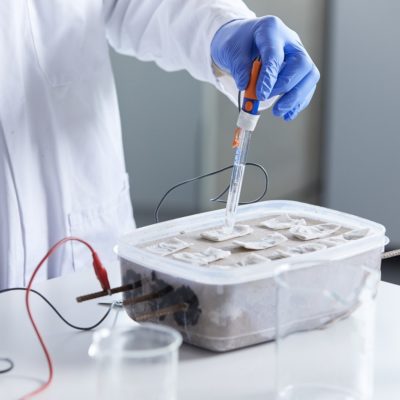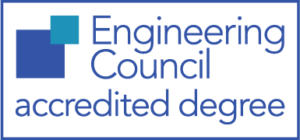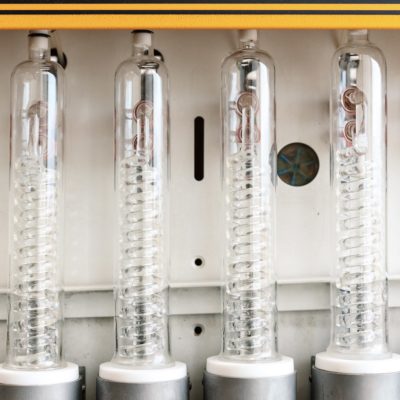
Engineering BSc (Hons)
Our Engineering course will give you the foundations, key principles and professional skills you need in...
Explore our campus, including our modern accommodation and innovative course facilities on our virtual tour.
To ensure we guide you through the correct application process, we just need you to answer a few quick questions.
Already applied?
Log in to view updates.
This course offers two separate application routes, depending on whether the application is submitted by the student or an international agent.
Please select your desired length of study from the available options.
This course includes a placement option. Please indicate whether you’d like to apply with or without a placement.
Please select where you would like to study.
All the available academic years are displayed below.
All the available start months for the selected academic year are listed below.
Please review the information below carefully before continuing.
If you need to make any changes, click the < Back button to return to the previous step.

UCAS Code
BEng: H308
BEng with Foundation: H309
Level
UndergraduateUG BEng (Hons) / MEng
Duration
Full Time: 3 - 4 years
Full Time Foundation: 5 years
Part Time: 5 - 8 years
Starting
September
BCC at A-Level or,
DMM at BTEC
Full Time: £9,535
Part Time: £1,585 per 20 credit module
Integrated Foundation Year: £9,535
International: £15,700
Integrated Foundation Year: £15,700
Waterside
Updated 09/04/2025
Updated 09/04/2025
For questions regarding study and admissions please contact us:
study@northampton.ac.uk
0300 303 2772
The degree in Mechanical Engineering at UON is a flexible course, with many options to add even more value to your studies. The BEng is available to study full-time or as a part-time mechanical engineering degree, with teaching delivered over multiple days each week. If you would prefer day-release study, the Engineering BSc (Hons) offers this option.
You can study for three years to achieve the BEng, and you can add an additional year in industrial placement between the second and third year, so that you can put your studies to practice.
If you choose to, you can then study for a further year to achieve the award of MEng, an integrated master’s stage, giving you a more in-depth experience of engineering principles and the opportunity to showcase all that you have learned in a substantial group research project.
A typical offer could be:
We look for applicants with A-Level Maths at grade C or above or Engineering at BTEC or T Level.
For more more information on how to make an application, please visit our How to Apply page.
If you are an International student and would like information on making an application, please see our How to Apply page.
Admission to this foundation course is normally DEE at A Level or MPP at BTEC. However, we would also like to hear from you if you have professional or industry experience instead, a range of other qualifications or self-developed subject knowledge that relates to the course you wish to study. Entry requirements are as follows:
All International and EU students applying for a course with us must meet the following minimum English language requirements:
For information regarding English language requirements at the University, please see our IELTS page.
Open Days give you the best experience and insight to courses, people and facilities that interest you. Make your choice easier and come meet us.
Our BEng Mechanical Engineering degree has been developed to ensure that you gain the skills and knowledge necessary to excel in your career and drive the industry forward. Within this course you will study mechanical engineering principles, mechanical design and simulation, materials science, control systems, thermo-fluids, corrosion and condition monitoring, as well as investigating sustainability and innovation within the industry and business practice.
At the end of the third year, you can choose to either graduate with a BEng level qualification, or continue onto the integrated master’s fourth year to achieve the MEng qualification.
Please note the modules shown here relate to the academic year 24/25. The modules relating to the academic year 25/26 will be available from June 2025.

This Mechanical Engineering degree has been accredited by IMechE under licence from the UK regulator, the Engineering Council.
Accreditation is a mark of assurance that the degree meets the standards set by the Engineering Council in the UK Standard for Professional Engineering Competence (UK-SPEC). An accredited degree will provide you with some or all of the underpinning knowledge, understanding and skills for eventual registration as an Incorporated (IEng) or Chartered Engineer (CEng). Some employers recruit preferentially from accredited degrees, and an accredited degree is likely to be recognised by other countries that are signatories to international accords.
At the University of Northampton, everything we do, from funded trips to paid internships, is to give you everything you need to make a difference when you leave.
If you join this full time Mechanical Engineering University of Northampton degree, you will receive a laptop when your course begins. The laptops are built to a bespoke custom specification ideal for use in the seminar room, collaborative group work or studying at home.
Whatever your ambitions, we’re here to help you to achieve them. We’ll support you to identify the skills you’re learning during your course, find your strengths and secure practical experience so that when it comes to applying for jobs or further study you’ll feel confident in standing out from the crowd. We’ve created the Northampton Employment Promise because we are so confident that if you focus on your studies and complete one of our awards you’ll be highly employable by the time you graduate. Putting you in a great position to secure employment or continue your studies.
To check out the full list of perks, visit our Student Perks page.
The Integrated Foundation Year (IFY) offers a new and exciting route into studying for a degree, attracting ambitious and driven students who are willing to learn and advance.
If you have non-standard qualifications or do not quite meet the admissions requirements we can offer you a fantastic opportunity to study a four year programme which includes an Integrated Foundation Year. The Integrated Foundation Year will help you develop the theoretical/practical and academic skills you need, in order to successfully progress to the full award.
Our four-year courses will enable you to successfully follow the degree pathway of your choice while gaining essential study skills. The foundation year of your chosen degree will be studied on a full-time basis and is aimed at supporting the transition to higher education. Years two, three and four are then studied as a standard degree programme.
Integrated into the second year is the opportunity to work with one of our industrial partners for three to four days per week. These placements are fully supported by the University and using our links with the Northampton Engineering Training Partnership (NETP) we ensure that you are given the guidance and support you need to have a fulfilling and productive placement experience.
We teach this course through a combination of theoretical and practical approaches so that you can learn system design techniques for electronic and mechanical purposes as well as how to optimise this design, depending on the application and purpose.
To broaden your theoretical knowledge and appreciate the applications of systems in heat and mass transfer applications (including hot water circulation and thermally powered cooling) you will work in our thermo-fluidics laboratory and use computer simulation tools.
There will also be small group work for collaborative research and development tasks which will help you learn how to work in multidisciplinary groups while improving your communication and presentation skills. The dissertation in your third year will consolidate everything you have learned and also develop your written communication skills.
This can also be studied as a part-time Mechanical Engineering Degree, studying 80 credits or less per year. This will be taught over multiple days each week. If day-release study is what you would prefer, Engineering BSc offers this option.
Typical modules are taught over four or five days per week.
For the initial BEng (Hons) qualification, a wide range of assessment tools are used, essays, reports, end of stage examinations.
Get all the info you need ahead of time, before you can apply for funding in Spring on our fees and funding pages.
2025/26 Tuition Fees
Fourth year will be charged at MSc rate, subject to inflationary increase.
Fees quoted relate to study in the Academic Year 2025/26 only and may be subject to inflationary increases in future years. UON will adjust UK fees annually in line with Government Policy.
There are currently no additional costs anticipated for this course for 2025 entry.
For information on the scholarships available to you, please see our scholarships page.
For more information about possible funding options, please visit our Fees and Funding pages.
Fees quoted relate to study in the Academic Year 2024/25 only and may be subject to inflationary increases in future years.
Fourth year will be charged at MSc rate, subject to inflationary increase.

Mechanical engineering university graduates are sought by employers in almost all sectors of the engineering industry.
These include:

Our Engineering course will give you the foundations, key principles and professional skills you need in...

Electronics and Computer Engineering BEng (Hons) degree equips students with the theoretical knowledge, practical skills and...